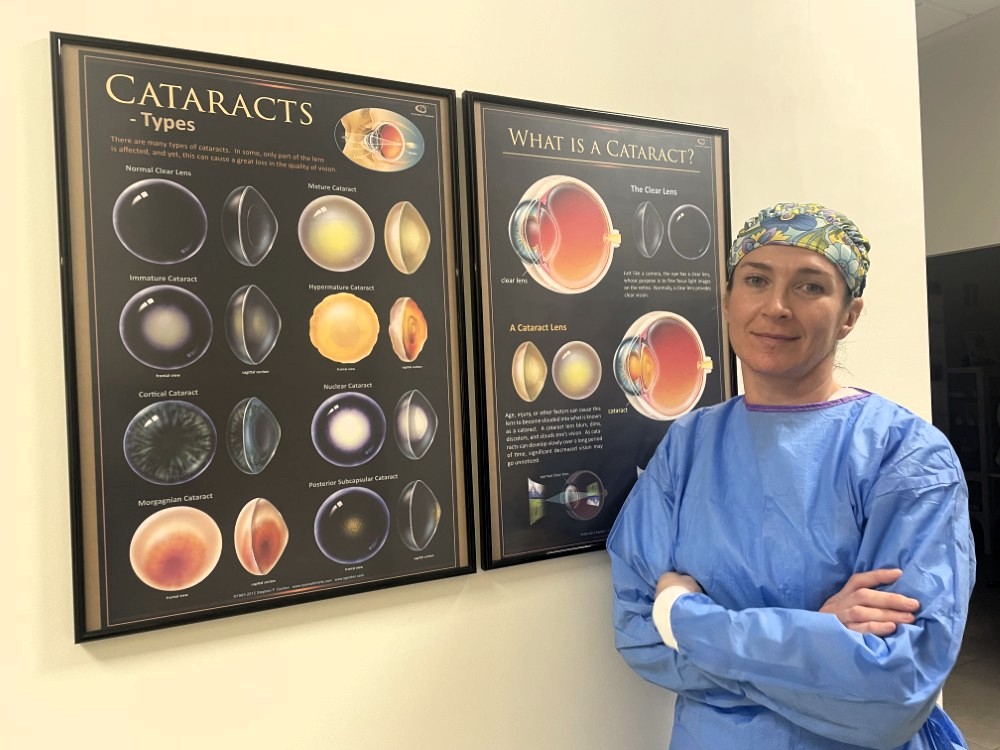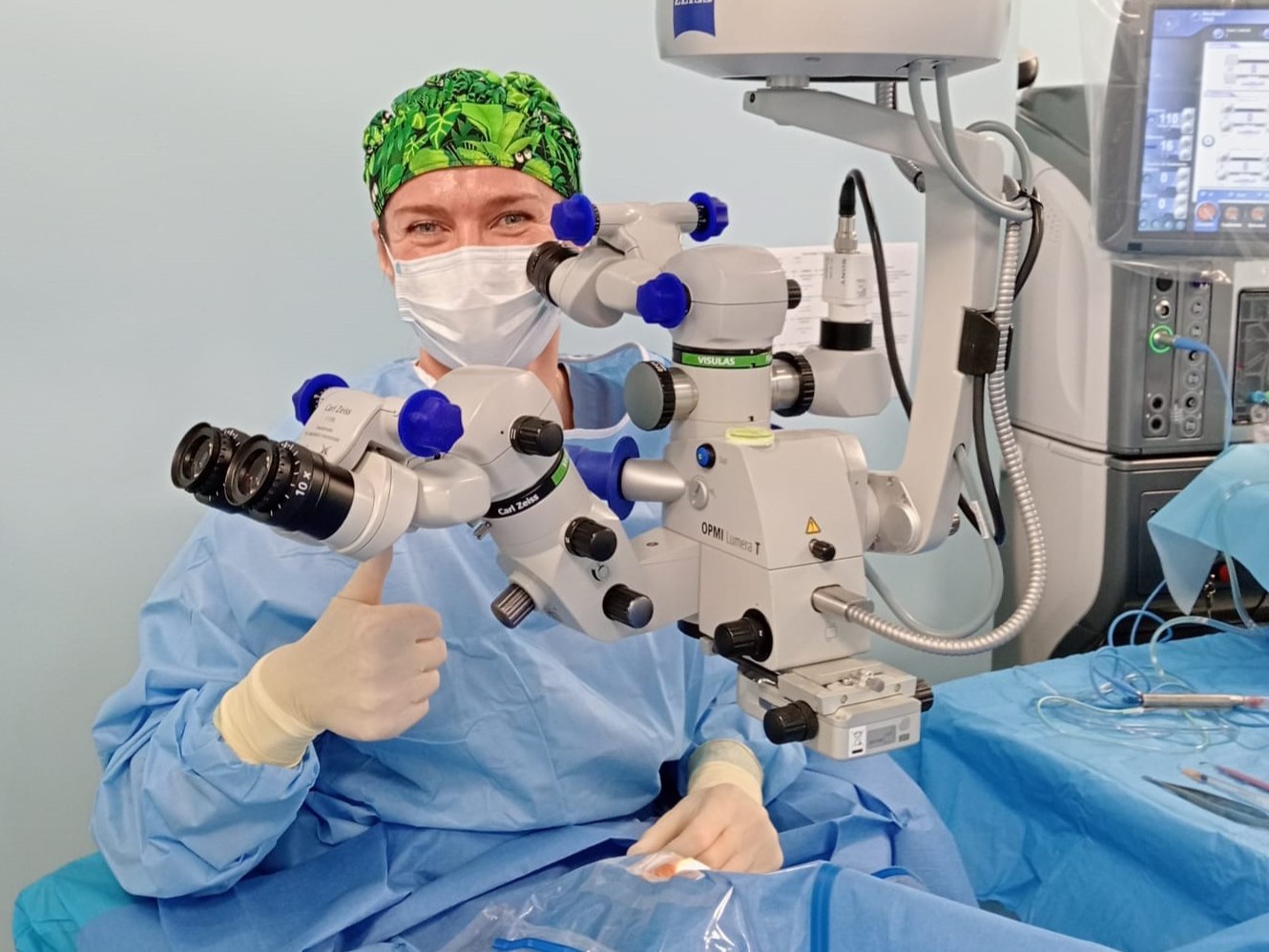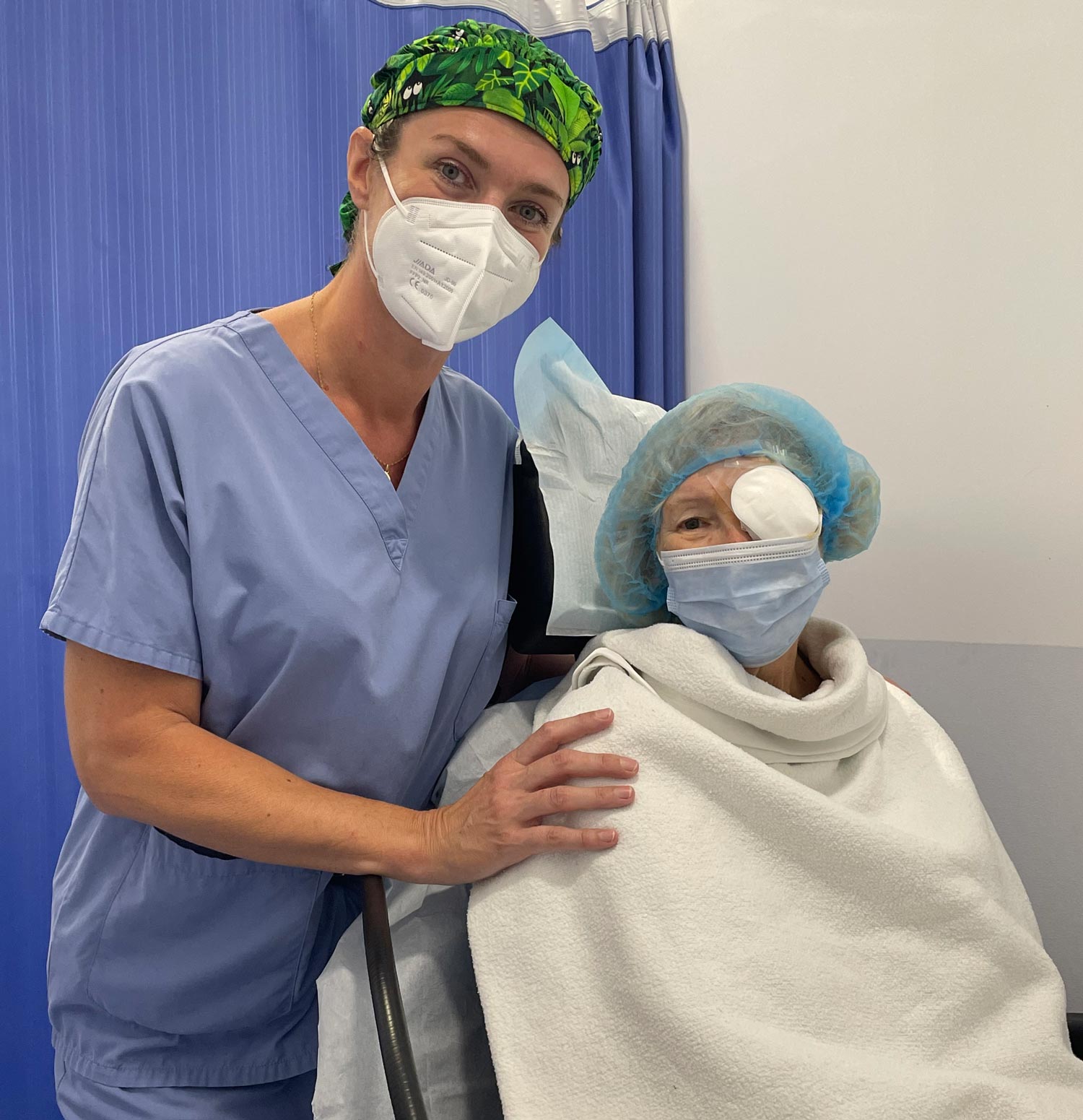Cataract surgery

The first consultation with an OCT scan:
- It is recommended to do a complete eye exam, to be sure that the cataract is the unique problem and that the structures located further back in the eye, such as the retina and the optic nerve are healthy.
-
This appointment is a great opportunity for the surgeon to assess your cataract and discuss the result you can expect after the cataract eye surgery.
When you and the eye doctor have decided to undergo cataract surgery, two appointments will be made for you:
- Preoperative blood test and electrocardiogram (ECG)
- The intraocular lens biometry test – We will measure the size and shape of your eye with a painless ultrasound test. The purpose of this is to determine the right type of lens implant to utilize during the surgery, as the lens will be chosen based on the curvature of the cornea and length of the eye.
- Monofocal lenses are the most common type of lens replacement. Monofocal lenses are set to maximize your best vision at one particular distance. Often, people choose to set them for distance vision and use reading glasses for near vision.
- Toric lenses. If you have significant astigmatism, a toric lens can help correct your vision.
- Multifocal lenses help you to see objects both far and near by splitting the light that comes into the eye. These lenses are not suitable for everyone and your surgeon will be able to tell you if you would benefit from a ‘premium lens’.
The pre-surgical appointment:
Your pre-surgical appointment is a great time to have any questions your surgeon will answer. You should take certain information to this appointment, such as any prescriptions you have and your medical history. You should also make your surgeon aware of any other conditions you may have.
Operation:
The procedure typically is performed on an outpatient basis and does not require an overnight stay in a hospital or other care facility.
In cataract surgery, the lens inside your eye that has become cloudy is removed and replaced with an artificial lens to restore clear vision. It is an entirely painless procedure as you will receive local anesthesia to numb the eye, and will likely receive a sedative to help you relax.
The operation takes about 15-20 minutes. The ophthalmologist always operates 1 eye per operation. Total stay in the hospital is approximately 3 hours. That includes preparation and the surgery.



Aftercare:
Immediately after surgery, a patch will be placed over the eye to provide protection against accidental contact, or inadvertent rubbing. The first follow-up appointment is the day after the surgery. The eye surgeon will explain the details about how to use the eye drops, when and for how long. After cataract surgery, expect your vision to begin improving within a few days. Your vision may be blurry at first as your eye heals and adjusts. You’ll usually see your eye doctor a day after your surgery, the following week, and then again after about a month to monitor healing.
Prices for cataract surgery per eye:
- The first consultation with an OCT scan costs 175€.
- The preoperative appointment is included in the price of the operation.
- The price for a cataract surgery with monofocal lens is 2500-2750€.
- The price for a cataract surgery with multifocal lens is 3000-3250€.
The prices are inclusive post surgery check-up reviews.
